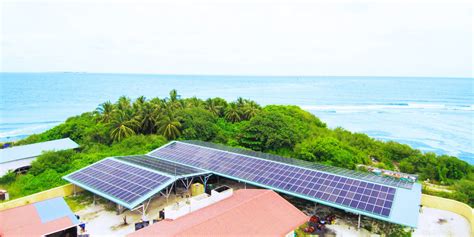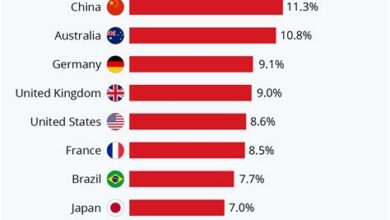Renewable Energy Projects in the Maldives: A Step Towards Sustainability

Explore renewable energy initiatives and investment in solar power, their impact on environmental conservation, and solutions to challenges with community engagement and education.As our world continues to grapple with the impacts of climate change, the importance of renewable energy initiatives cannot be overstated. In the Maldives, a country particularly vulnerable to the effects of rising sea levels and extreme weather events, the shift towards sustainable energy sources has become a crucial step towards ensuring the long-term viability of the islands. In this blog post, we will explore the various renewable energy projects that have been initiated in the Maldives, with a specific focus on the investment in solar power. We will also examine the impact that these initiatives have had on environmental conservation, as well as the challenges that have been encountered along the way, and the solutions that have been implemented to address them. Additionally, we will explore the role of community engagement and education in driving the adoption of renewable energy practices across the islands. Join us as we delve into how the Maldives is taking significant strides towards a more sustainable and environmentally conscious future.
Renewable Energy Initiatives
In recent years, the Maldives has been making significant strides in implementing renewable energy initiatives as a crucial step towards sustainability. The island nation, known for its pristine beaches and crystal-clear waters, is highly susceptible to the impacts of climate change such as rising sea levels and extreme weather events. As a result, there has been a growing emphasis on transitioning towards clean energy sources to reduce the country’s carbon footprint and mitigate the environmental challenges it faces.
One of the key renewable energy projects in the Maldives is the adoption of solar power as a primary source of electricity. Given the country’s abundant sunlight throughout the year, solar energy presents a viable and sustainable solution to meet the energy needs of the Maldivian population. Various initiatives and investments have been made to harness the potential of solar power and integrate it into the national energy grid, aiming to reduce reliance on fossil fuels and minimize the environmental impact of traditional energy sources.
Furthermore, the implementation of renewable energy projects in the Maldives has not only focused on technological advancements but also on community engagement and education. Local communities have been actively involved in the development and management of renewable energy initiatives
Investment in Solar Power
Investing in solar power has become increasingly popular as the demand for renewable energy continues to rise. The Maldives, with its abundant sunlight, is well positioned to take advantage of solar energy as a sustainable energy source. By investing in solar power, the Maldives can reduce its dependence on imported fuel and move towards a more sustainable and environmentally friendly energy source.
One of the main advantages of solar power investment is its long-term cost savings. While the initial investment in solar panels and infrastructure may be significant, the long-term savings on energy costs can be substantial. The Maldives, with its high electricity costs and reliance on imported fuel, stands to benefit greatly from investing in solar power as an alternative energy source.
Furthermore, investment in solar power can also have a positive impact on the local economy. The creation of solar power infrastructure and the development of a solar energy industry can provide job opportunities for local communities, contributing to economic growth and development. Additionally, the reduced reliance on imported fuel can help to stabilize energy costs and improve energy security for the Maldives.
Impact on Environmental Conservation
Renewable energy projects in the Maldives have had a significant impact on environmental conservation. By shifting towards solar power and other forms of renewable energy, the Maldives has reduced its reliance on fossil fuels, thereby decreasing carbon emissions and mitigating the effects of climate change. This shift towards clean energy has also led to a decrease in air and water pollution, preserving the delicate ecosystems of the Maldives.
Furthermore, the implementation of renewable energy initiatives has helped in reducing the country’s carbon footprint, leading to the preservation of the Maldives’ unique and diverse marine life. The decrease in pollution resulting from renewable energy projects has also contributed to the overall health of the environment, ensuring the preservation of the natural beauty and resources of the Maldives for future generations.
Overall, the impact of renewable energy projects on environmental conservation in the Maldives has been substantial. The country’s commitment to sustainability through clean energy initiatives has not only reduced its impact on the environment but has also set a positive example for other nations looking to prioritize environmental conservation and mitigate the effects of climate change.
Challenges and Solutions
One of the major challenges in implementing renewable energy projects in the Maldives is the high initial investment required. The cost of setting up solar panels or wind turbines, for example, can be quite high, especially for a small island nation like the Maldives. This makes it difficult for the government and private sector to fund such projects, leading to a slow uptake of renewable energy initiatives.
Another challenge is the lack of technical expertise and knowledge in the field of renewable energy. The Maldives, being a small developing country, may not have the necessary human resources or expertise to effectively plan, implement, and maintain renewable energy projects. This lack of expertise can often lead to project delays, cost overruns, and suboptimal performance of renewable energy systems.
However, there are several solutions to these challenges. One solution is to attract foreign investment and technical expertise through partnerships and collaborations with other countries and international organizations. By leveraging external resources and knowledge, the Maldives can overcome some of the challenges it faces in implementing renewable energy projects. Additionally, the government can provide incentives and subsidies to encourage private sector investment in renewable energy, making it more financially feasible for businesses to adopt sustainable energy solutions.
Community Engagement and Education
Community engagement and education are crucial components of the transition to renewable energy in the Maldives. As the country strives to reduce its reliance on fossil fuels and embrace sustainable alternatives, it is essential to involve local communities and raise awareness about the benefits of solar power and other forms of renewable energy. By engaging with citizens and providing them with the necessary information and resources, the Maldives can empower individuals to make informed decisions and contribute to the success of renewable energy initiatives.
One of the key challenges in community engagement and education is the need for widespread investment in solar power infrastructure and technology. Many remote islands in the Maldives lack access to reliable electricity, making it difficult to implement renewable energy projects. Through targeted education and outreach efforts, the government and other stakeholders can educate communities about the benefits of solar energy and encourage investment in solar power solutions. This can help bridge the gap in access to electricity and improve the overall quality of life for residents.
In addition to promoting environmental conservation, community engagement and education initiatives can also address the social and economic benefits of embracing renewable energy. By involving local communities in the planning and implementation of solar power projects, the Maldives can foster a sense of ownership and responsibility among residents. This can lead to greater support for sustainable energy initiatives and facilitate the long-term success of renewable energy projects in the country.





